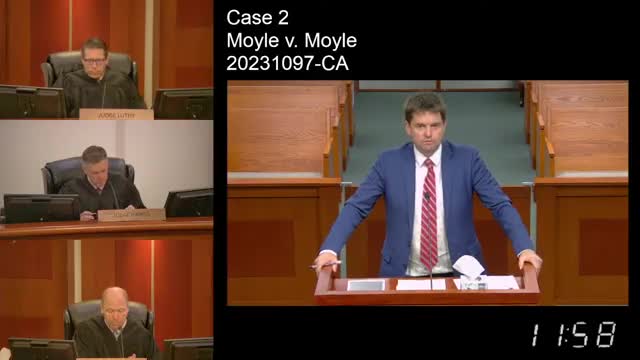Legal Team Challenges Expert Testimony Disclosures in High-Stakes Financial Case
August 26, 2025 | Utah Court of Appeals Live Stream, Utah Appellate Court, Utah Judicial Branch, Utah
Thanks to Excel Chiropractic and Scribe from Workplace AI , all articles about Utah are free for you to enjoy throughout 2025!

This article was created by AI using a video recording of the meeting. It summarizes the key points discussed, but for full details and context, please refer to the video of the full meeting. Link to Full Meeting
The heart of the matter centered on a motion to exclude expert testimony due to the absence of foundational documents. One attorney argued that the expert's report, which included numerous citations and footnotes, lacked the necessary underlying data to substantiate its claims. This absence raised questions about the reliability of the expert's opinions, particularly concerning significant financial matters, such as property valuation and income analysis for child support.
Judges pressed for clarity, questioning whether the trial court had adequately addressed the issue of disclosure. They highlighted the importance of understanding what documents were missing and whether their absence could be deemed harmless. The discussion revealed a complex interplay between procedural rules governing expert testimony and the potential impact on the case's outcome.
As the dialogue unfolded, it became evident that the court had previously ruled against allowing speculative testimony. However, the attorneys grappled with whether this ruling sufficiently addressed the concerns raised about the expert's qualifications and the integrity of the testimony provided.
The implications of this case extend beyond the courtroom, touching on the broader themes of transparency and accountability in legal proceedings. As the judges deliberated, the stakes remained high, with the potential to influence future cases involving expert testimony and the standards for disclosure in Utah's legal landscape. The outcome of this appeal could set a precedent, shaping how courts evaluate the admissibility of expert opinions in critical financial disputes.
Converted from 20230121 State v. Newberry audio file meeting on August 26, 2025
Link to Full Meeting
Comments
View full meeting
This article is based on a recent meeting—watch the full video and explore the complete transcript for deeper insights into the discussion.
View full meeting

